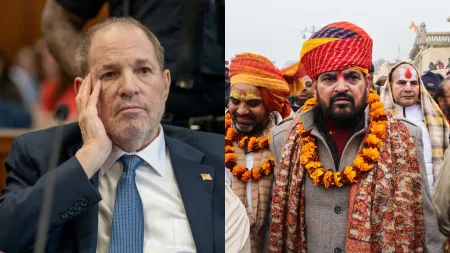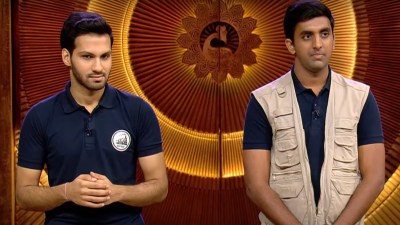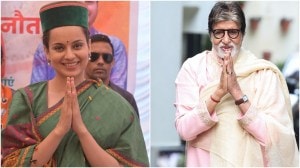- India
- International
In Indian Science Congress papers: Yoga & Gita for spiritual health in social media era
Some of the observations and remedies to ensure the country’s “well-being”, according to papers submitted under the ‘Anthropological and Behavioural Sciences’ section at the 105th Indian Science Congress.
 Performance during inauguration of Science Congress. (Photo: Twitter/Manipur University)
Performance during inauguration of Science Congress. (Photo: Twitter/Manipur University)
INDIA APPEARS stressed out, fatigued by social media, in need of Patanjali yoga, and should ideally apply the Bhagwat Gita’s messages to modern society.
These are some of the observations and remedies to ensure the country’s “well-being”, according to papers submitted under the ‘Anthropological and Behavioural Sciences’ section at the 105th Indian Science Congress.
Among the topics covered in this section were predictors of life satisfaction among young adults, forgiveness as related to emotional well-being and gratitude, science and tech in yogic exercises, compassion predicting well-being, and the role of spiritual healing in the Indian health care delivery system.
Read | Few women in science, fewer on stage of Science Congress to speak about it
“It just so happened there were several such papers submitted this year,” says Rakesh Srivastava, a retired psychology professor and president of this section. The five-day Congress ends Tuesday.

“India is stressed out but it is also fashionable nowadays to say ‘I am stressed’. The reason you see more research on wellness or well-being is because this is a new concept in psychology. From clinical psychology, we are looking at positive aspects of longevity and subjective well-being,” says Vandana Sharma, a psychology professor from the Akal University in Bathinda, who was scheduled to speak on the ‘Efficacy of Raag Bhairavi: Spiritual Wellness Perspective’.
Sharma, a proponent of “music therapy” who could not make it to Imphal due to work commitments, says the focus of psychology has of late shifted to “positive psychology”.
One of the papers deals with the ‘Impact of social-networking sites on well-being of college students in Jharkhand’ and finds their “ethnicity” has a significant main effect on subjective well-being.
A paper submitted by two faculty members from the University of Lucknow attempted to study how the dohas (couplets) of Sant Kabirdas can “generate emotional maturity among people” and thus create a national consciousness. “There is an urgent need to create a phenomenon of national consciousness. This can be achieved through awakening the youth to the truth that all Indians share the same emotional bond with their country,” reads the abstract.
While one paper spells out the role behavioural scientists can play in the well-being of farmers in the wake of hardships they face due to the economy and climate change, another studies the spiritual intelligence in India’s agricultural scientists. Here, spiritual intelligence is defined as being “associated with fulfillment of higher order needs collectively termed a growth or ‘being needs’”.
The paper finds that “scientists with very high research contribution were found to be significantly higher in their SQ as compared to the scientists with low research contributions”.
Another ISC enthusiast who could not make it this time due to work commitments is the District Magistrate of Muzzafarnagar, Rajeev Sharma. He had been accepted to speak while he was special secretary in the Public Works Department in the Uttar Pradesh but was recently transferred as DM.
In the previous two editions, Sharma spoke about the health benefits and scientific methodology involved in blowing of the conch. This time, he was scheduled to speak on ‘Mindfulness, Dhyana and Yoga – an analysis of Yoga procedures and practices in orders to promote mindfulness or Dhyana’.
“I did my PhD in Yog-therapy and I have done extensive research on all these subjects, so I was really looking forward to speaking this year,” he says.
The abstract of his paper reads: “The mindfulness of positive psychology is nothing by Dhyana which is the essential psychological ingredient of a man… The Patanjali’s ‘Ashtang Yoga’ specifically describes the method of achieving Dhyana or mindfulness.”
May 06: Latest News
- 01
- 02
- 03
- 04
- 05





































